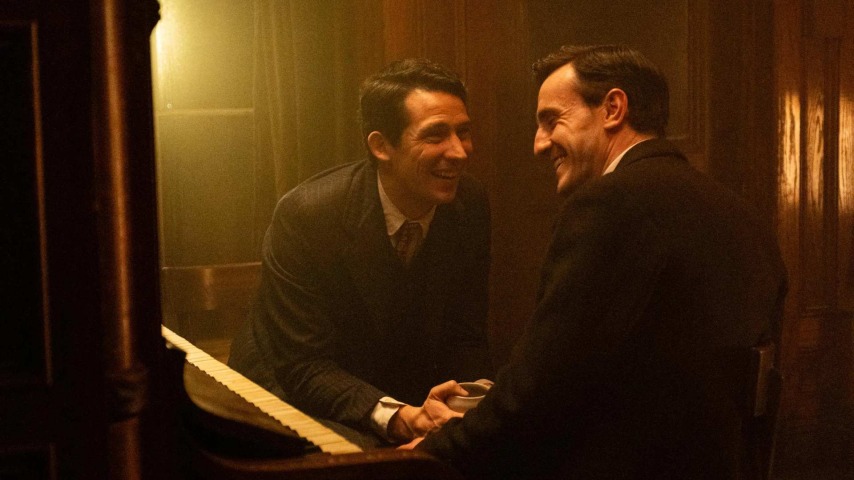Paul Mescal and Josh O'Connor find modest chemistry in one-note queer romance The History Of Sound
Oliver Hermanus' film is both musically inert and narratively repetitive, turning its story into a familiar tune.
Photo: Courtesy of Cannes Film Festival
Music is a complicated thing, but it’s also paradoxically simple. Twelve notes in various octaves are used in the Western scale, arranged according to rules and regulations codified through the experimentation of generations. Melodic phrases and jumps in mathematical order and arrangement, resulting in the expression of emotion through the vibration of air. It is nothing short of a miracle that mixes laws of physics and our evolved ability to delineate coherence from chaos. Yet make the smallest of changes—hold a note a bit longer, change the order in which they are presented—and things become discordant. Sometimes, this is the desired outcome, creating something surprising with its inharmonic boldness. Sometimes, however, it’s simply that the tune falters, its effect diminished, either too close to what we’ve heard before to be novel, or so repetitive that it loses its ability to surprise or captivate. Such is the issue with Oliver Hermanus’ The History of Sound.
All the notes are there for a symphony. There’s the director, just off the magnificence of the Oscar-nominated Living, an astonishing, still underloved masterpiece that managed to upstage Kurosawa’s own incredible Ikiru. There’s the ensemble, centered on Paul Mescal and Josh O’Connor, two talents at the height of their powers, each recently coming off iconic performances in already classic queer films like All Of Us Strangers and Challengers. Add in the source in a celebrated short story by Ben Shattuck, handsome photography by Alexander Dynan (First Reformed), a period setting where young love can flourish at a time of great social and political upheaval, and it should all work. Yet it doesn’t, at least not very well, and that’s perhaps the most surprising thing about the film.
The History Of Sound follows Lionel (Mescal), a rural Kentucky boy who tells the audience (voiceover provided by a wonderfully sonorous Chris Cooper) that he has synesthesia, the near-mystical ability to not only hear and delineate notes, but to feel them—to perceive that a B-flat is yellow while an F-sharp is more green, or a D-minor chord is sour on the back of the tongue while a G-major is sweet at the tip. Little comes from this revelation, save that one is simply to accept that Lionel was born in these lonely woods destined for a world far removed from the limitations of his surroundings.
Entering the New England Conservatory as a voice major, he picks out the sounds being played a few feet away at a local gathering. There, David (O’Connor) plinks away at a piano, playing a song that Lionel knows as one of his father’s. The two soon connect, with David talking about having a perfect melodic memory, another mystical talent, making The History Of Sound perhaps the most subtle example of the superhero movie ever made.
 Keep scrolling for more great stories.
Keep scrolling for more great stories.
